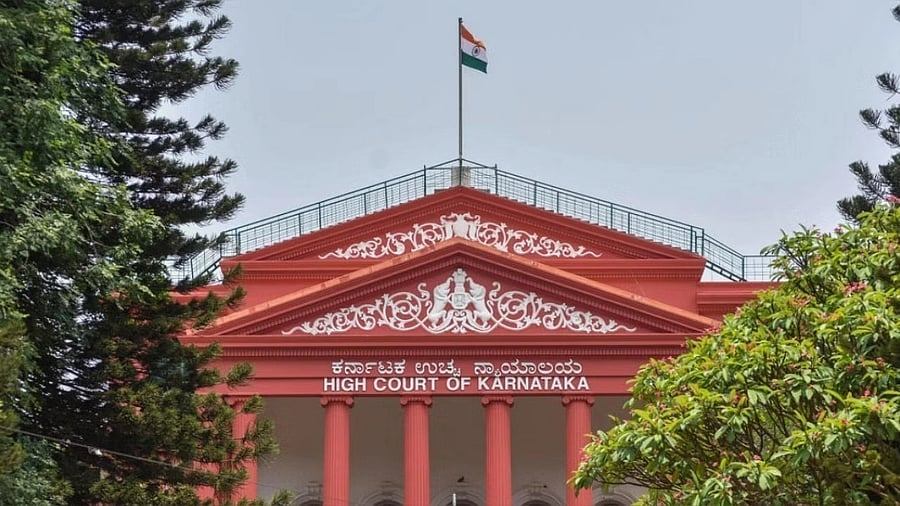
The Karnataka High Court.
Credit: DH File Photo
The Karnataka High Court’s order quashing criminal proceedings against two persons from Dakshina Kannada who had been charged for shouting 'Jai Shri Ram' slogans inside a mosque raises some questions. Two persons had barged into a mosque in Aithur village, shouted the slogan, and allegedly issued threats. The two were booked for offences under the IPC for criminal trespass, insulting the religious beliefs or religion of a class of citizens, causing public mischief, and intimidation, etc. The court said it is not understood how shouting 'Jai Shri Ram' can inflame the religious sentiments of any section and how it can hurt the sentiments. The court also said the incident could not have created any communal problem because the complainant had himself said that Hindus and Muslims were living in harmony in the area. It cited the Supreme Court judgement in the case of M S Dhoni vs. Yarraguntla Shyamsunder, which held that acts which have no effect on the establishment of peace or public order do not constitute an offence under IPC Section 295A, which is about insult to religious beliefs.
While shouting ‘Jai Shri Ram’ in itself would not constitute any offence, the question is whether the shouting of the slogan by two trespassers in a mosque can be considered as inoffensive. The slogan-shouting should be considered in the context of the charge that some persons were seen circling the mosque on vehicles and the alleged threat issued inside the mosque. The view that the mosque is a public place and therefore entry into it cannot be considered as trespass is debatable. If there was no untoward consequence in the area where the two communities lived in harmony, they should be praised for that. But would that absolve the two persons of intention to create mischief? In the normal course, their act would be considered provocative.
The Supreme Court’s M S Dhoni judgement said that not every act or attempt to insult religion or the religious beliefs of a class of citizens would be penalised under Section 295A. It said that only malicious or deliberate acts, or attempts, undertaken with the intention of outraging religious beliefs would invite action under the Section. The question is whether the judgement is applicable in the Aithur case. The presence of the two persons in the mosque was not an accident. Circumstances would suggest that there was some deliberation and intention behind their action of going to the mosque and shouting the slogan there. It cannot be compared with M S Dhoni being portrayed in an advertisement as Lord Vishnu with the caption “God of Big Deals”. Muslim organisations have expressed their concern and said the judgement could be misused by those wishing to destroy communal harmony.
